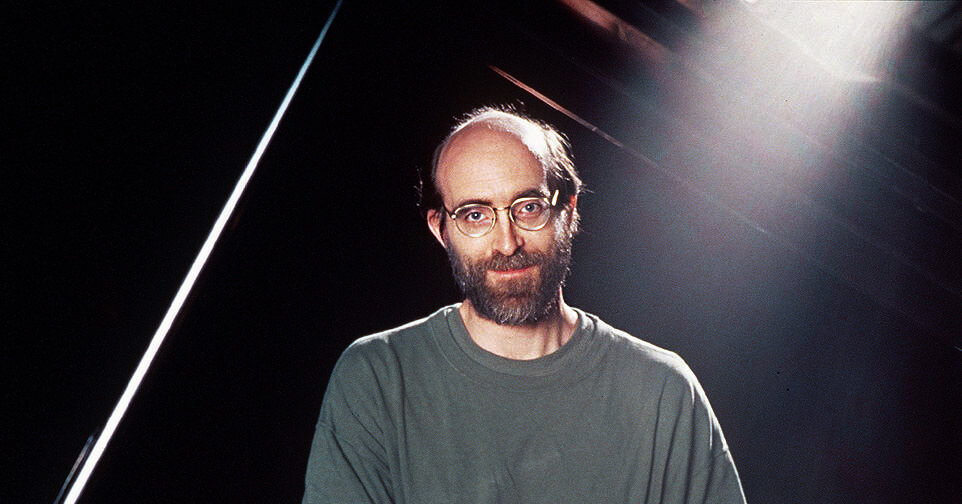
George Winston, who during decades when pop and rock dominated the musical landscape became a best-selling musician by playing soothing piano instrumentals in a style that was often described as new age but that he liked to call “rural folk piano,” died on Sunday in Williamsport, Pa. He was 74.
His publicist, Jesse Cutler, said the cause was cancer. Mr. Winston, who lived in the Bay Area, had dealt with several cancers for years while continuing to record and perform; he credited a 2013 bone marrow transplant with extending his life. He was staying in Williamsport near where his tour manager lives, Mr. Cutler said.
Mr. Winston released his first album, “Ballads and Blues,” in 1972, but it was “Autumn,” released in 1980 on the fledgling Windham Hill label, based in Palo Alto, Calif., that propelled his career. It consisted of seven solo piano compositions that were, like most of his music, inspired by nature. They bore simple titles — “Sea,” “Moon,” “Woods” — and hit a sweet spot for many listeners. Sales soared into the hundreds of thousands.
“By attuning his emotions to the serenity, order and power of nature rather than to the violently frenetic tones of our contemporary cityscape,” Lee Underwood wrote in a review in DownBeat, “Winston provides us with a perfect aural and psychological antidote to the urban madness.”
Mr. Winston continued the calendar theme with two 1982 albums, “December” and “Winter Into Spring,” and again with a 1991 release, “Summer.” His 1994 record, “Forest,” won a Grammy Award for best new age album — a category that was relatively new at the time — and he was nominated four other times.
Those nominations were evidence of the range of his musical interests. Two — for “Plains” (1999) and “Montana: A Love Story” (2004) — were for best new age album, but he was also nominated for best recording for children for “The Velveteen Rabbit” (1984; Meryl Streep provided the narration) and for best pop instrumental album for “Night Divides the Day: The Music of the Doors” (2002).
Mr. Winston recorded two albums of the music of Vince Guaraldi, the jazz pianist best known for composing music for animated “Peanuts” television specials. In 2012, he released “George Winston: Harmonica Solos,” and in 1983 he created his own label, Dancing Cat Records, to record practitioners of Hawaiian slack-key guitar, a genre he particularly admired.
He never cared much for efforts by critics and others to pigeonhole his music or his musical interests.
“I think putting a label on music is the most useless endeavor,” he told United Press International in 1984, “except for putting a name on religion.”
George Otis Winston III was born on Feb. 11, 1949, in Hart, Mich., near Lake Michigan, to George and Mary (Bohannon) Winston. His father was a geologist, and his mother was an executive secretary.
He grew up in Mississippi, Florida and Montana. He said that his years in Montana were instrumental in instilling the profound appreciation of nature and the changing seasons that later inspired his music. Even after he left the state to live in other places, including on the West Coast, he would return occasionally to be re-energized.
“I am very grateful for having spent a lot of time growing up in this beautiful state,” he wrote in “Montana Song,” a 1989 essay posted on his website, “and I can say that the modest, workable level I have managed to get to, both musically and spiritually, would not have been possible without the inspirations and feelings I get from Montana now, and from my memories of growing up there.”
Mr. Winston took piano lessons as a child but didn’t stick with it. Hearing the Doors’ debut album in 1967 reawakened his musical interest.
“When I heard the first song on Side One, ‘Break On Through (to the Other Side),’ to me it was the greatest piece of music I’d ever heard,” he said in a 2004 interview.
The playing of the Doors’ organist, Ray Manzarek, inspired him to take up the organ, which he played alongside fellow students at Stetson University in Florida in a group called the Tapioca Ballroom Band. But in 1971 he became enthralled by recordings of Fats Waller from the 1920s and ’30s and decided that piano was his future.
He was mostly self-taught, although he studied for a time with James Casale, a jazz pianist in Miami.
“He got me straight on chords, music theory, the basics,” Mr. Winston told The Charleston Daily Mail of West Virginia in 2005.
Mr. Winston, who is survived by a sister, said he was also influenced by the music of two New Orleans pianists, Professor Longhair and James Booker. All of his influences merged into the style he called rural folk piano, a term he came up with to encompass music that, as he said on his website, “is melodic and not complicated in its approach, like folk guitar picking and folk songs, and has a rural sensibility.”
Critics sometimes found his piano work to be unsophisticated or repetitive, but he sold millions of albums and drew enthusiastic audiences wherever he played. His concerts generally included a charitable component, benefiting food banks or other causes.
Mr. Winston knew his music wasn’t for everyone, and he was self-deprecating about that.
“One person’s punk rock is another person’s singing ‘Om’ or playing harp,” he told The Santa Cruz Sentinel of California in 1982. “It’s all valid — everybody’s got their own path. I wouldn’t want to sit around and listen to me all day.”
Jay Gabler, writing on the website Your Classical in 2013, summed up Mr. Winston’s appeal and skill.
“Love him or hate him,” he wrote, “George Winston is the kind of artist who demonstrates what fertile ground there is to be trod in the vast open spaces among musical genres.”













